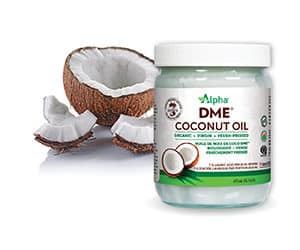
As more people across North America use marijuana for medical and recreational reasons, it is vital to be aware of the potential cardiovascular risks.
In today’s world, it is almost impossible to avoid media information about the increase in mental health and substance use disorders (SUDs). In the news, various media platforms are flooded with information about climate change, inflationary financial insecurity, and general uncertainties and instability. So, is it any wonder that we see more people of all ages being challenged?
Marijuana or cannabis use and binge drinking among ages 19–30 and 35–50 have reached all-time highs, according to a study panel funded by the National Institute on Drug Abuse (NIDA). As more people across North America use marijuana for medical and recreational reasons, it is vital to be aware of the potential cardiovascular risks. Two newer studies suggest that regular intake of cannabis in older people may damage heart and brain health. The results of one study in people with a median age of 54 found a 34% increase in the risk of heart failure in people who used marijuana daily compared with those who had never used it. This study relied on data that did not specify whether the marijuana was inhaled or eaten. In the other study, researchers analyzed patients who were hospitalized for any reason and found that those who used marijuana and also had an underlying medical condition, such as type 2 diabetes, had a significantly increased risk of heart-related incidents compared to patients who didn’t use cannabis.
The general agreement regarding the increased risk of cardiovascular disease (CVD) with cannabis use appears to be linked to how often cannabis is used and the amount of tetrahydrocannabinol (THC) consumed. THC is a cannabinoid in cannabis known to activate the sympathetic nervous system. This cannabinoid increases heart rate and blood pressure, which can cause an added strain on the heart. However, cannabidiol (CBD), another cannabinoid in cannabis, is an antioxidant and anti-inflammatory, and preliminary studies show that it helps protect the heart.
Another critical factor was how cannabis was ingested. Smoking and inhaling cannabis increases concentrations of blood carbon monoxide and tar, similar to the effects of inhaling tobacco, which is linked to CVD. Overall, researchers state that “Based on these early findings… more data are needed to determine the risks, and if using cannabis, it is important to inform your health care provider to monitor heart health.”
Like cannabis, alcohol’s impact on the cardiovascular system is dose-dependent; persistent, heavy drinking increases the risk of CVD, and episodic binge drinking has also been associated with a heightened risk of hypertension, atrial fibrillation, heart attack, sudden death, and, in younger individuals, stroke.
Reviewing this data could make a person feel helpless about what they can do to reduce the use of these substances. The good news is that several natural supplements are found to help calm the brain, support heart health, and reduce cravings.
N-ACETYL-CYSTEINE (NAC) AND/OR GLUTATHIONE FOR SUDS – NAC is the precursor to glutathione, the body’s master antioxidant, which can help fight addiction. Chronic use of drugs can lead to the formation of oxidative stress, which changes the brain’s biochemistry, leading to addictive behaviours. Studies have found that NAC reduces cravings and depression in people with post-traumatic stress disorder (PTSD) and SUDs and general symptoms of PTSD. In an eight-week, double-blind, randomized, controlled trial of 116 adolescents, NAC taken at 1200 mg twice daily doubled the odds of abstinence.
Preliminary studies have shown that NAC significantly reduced relapse-like drinking and improved impulse control, and research findings continue to support the use of NAC as an adjuvant treatment for the maintenance of abstinence in SUDs. In addition, smokers voluntarily reduced their cigarette use by around 25% after two weeks of supplementing with NAC.
THEANINE has been shown to reduce anxiety, calm the nervous system, reduce blood pressure, and reduce the risk of CVD. Research has found that theanine can protect the body from alcohol damage by reducing free radicals and assisting in the breakdown of acetaldehyde (formed from the breakdown of alcohol), similar to formaldehyde. L-theanine has been found to modulate the chemistry of alcohol and can be taken before or after drinking.
MAGNESIUM has been shown to decrease dependence on opiates, nicotine, cocaine, amphetamine, and alcohol, and reduce the intensity of withdrawal symptoms when stopping these drugs.
In addition to natural supplement support, it is important to seek professional help when struggling with any SUDs. Scientists have proven cognitive behavioural therapy to be effective, and that counselling can also be very supportive.
In closing, after considering the potential adverse effects of alcohol and marijuana, it may be time to choose natural support to offset health risks.














